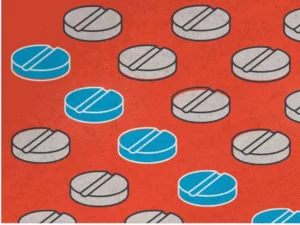In recent years, the Mediterranean diet has emerged not just as a culinary tradition but as a potent contender in the realm of disease prevention, particularly for breast cancer—a formidable foe among women worldwide. Its emphasis on fresh produce, healthy fats, and minimal processed foods is more than just a lifestyle preference; it holds the
For decades, society has perpetuated the idea that shorter men exhibit more aggression, dominance, or competitive behaviors—often labeled as “little man syndrome” or “Napoleon complex.” This concept, while widely recognized culturally, lacks any formal footing within medical or psychological frameworks. The seductive simplicity of attributing personal flaws or aggressive quirks solely to height is not
When navigating the complexities of Hodgkin’s lymphoma, understanding the nuances of stage 2 disease is crucial. This stage signifies a pivotal point in the cancer’s progression—spreading across multiple lymph node groups either above or below the diaphragm, the muscular barrier beneath the lungs. The designation of “stage 2” indicates localized spread, but it is far
In the relentless world of healthcare during a global crisis, many frontline workers quietly shoulder immense burdens. Their stories often remain unheard, hidden beneath the layers of duty and resilience. The narrative of a nurse working grueling night shifts amidst a pandemic exemplifies this silent struggle. Despite the relentless exhaustion, many feel compelled to suppress
In the modern skincare landscape, where an array of products promises everything from youthful glow to drastic skin transformations, understanding how your skin reacts to these formulations is crucial. Conducting a patch test is an empowering step anyone can take to safeguard their skin health. Far from being a cumbersome chore, a patch test is
Health screenings during infancy lay the crucial groundwork for a lifetime of well-being. These early assessments serve as silent sentinels, uncovering hidden health issues before they manifest symptoms or cause irreversible damage. By conducting routine checks in the first days of life, clinicians can identify congenital anomalies, metabolic disorders, or developmental delays that might otherwise
Dealing with mental health crises can be overwhelming, but foresight can make a significant difference. Preparing a comprehensive plan before an emergency strikes is crucial. Identifying and familiarizing yourself with the nearest urgent mental health facilities ensures that help is readily accessible when needed. Creating a quick-reference map or saving essential contact information on your
Multiple myeloma (MM) remains an elusive adversary, often lurking unnoticed until it manifests through seemingly innocuous oral symptoms. This hematologic malignancy originates in plasma cells within the bone marrow, yet its early clues may appear directly in the mouth. Dental professionals and physicians alike must recognize that jaw swelling, pain, or unusual tissue changes could
Pregnancy is a transformative journey, marked by joyous anticipation and profound physical changes. However, for women diagnosed with gestational diabetes (GD), this journey can become fraught with challenges that threaten both maternal and fetal health. Traditional blood glucose monitoring methods, reliant on finger pricks, often are discomforting and intrusive, deterring consistent management. The advent of
Trauma is a complex and deeply personal experience that manifests uniquely across individuals. While many are familiar with the term PTSD, fewer grasp the nuances that distinguish acute stress disorder from more chronic forms of trauma-related conditions. Acute stress disorder, often misunderstood, can serve as a critical warning sign on the path to longer-lasting psychological














